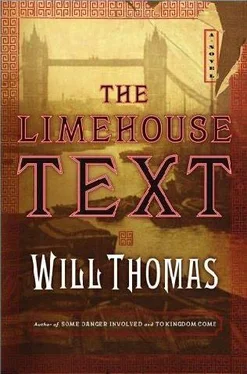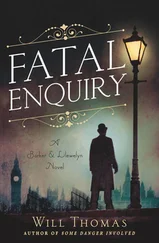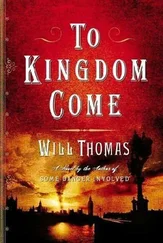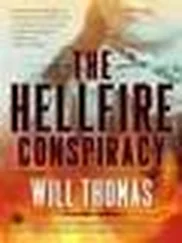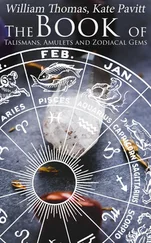Will Thomas - The Limehouse Text
Здесь есть возможность читать онлайн «Will Thomas - The Limehouse Text» весь текст электронной книги совершенно бесплатно (целиком полную версию без сокращений). В некоторых случаях можно слушать аудио, скачать через торрент в формате fb2 и присутствует краткое содержание. Жанр: Исторический детектив, на английском языке. Описание произведения, (предисловие) а так же отзывы посетителей доступны на портале библиотеки ЛибКат.
- Название:The Limehouse Text
- Автор:
- Жанр:
- Год:неизвестен
- ISBN:нет данных
- Рейтинг книги:5 / 5. Голосов: 1
-
Избранное:Добавить в избранное
- Отзывы:
-
Ваша оценка:
- 100
- 1
- 2
- 3
- 4
- 5
The Limehouse Text: краткое содержание, описание и аннотация
Предлагаем к чтению аннотацию, описание, краткое содержание или предисловие (зависит от того, что написал сам автор книги «The Limehouse Text»). Если вы не нашли необходимую информацию о книге — напишите в комментариях, мы постараемся отыскать её.
The Limehouse Text — читать онлайн бесплатно полную книгу (весь текст) целиком
Ниже представлен текст книги, разбитый по страницам. Система сохранения места последней прочитанной страницы, позволяет с удобством читать онлайн бесплатно книгу «The Limehouse Text», без необходимости каждый раз заново искать на чём Вы остановились. Поставьте закладку, и сможете в любой момент перейти на страницу, на которой закончили чтение.
Интервал:
Закладка:
“I’d like him to verify what I believe this to be, if you have no objections.”
“None whatever, as long as I don’t have to eat any of the swill he serves. It’s eels, eyes of newt, and whatever was run over by the Leadenhall meat wagons the night before. They say there are no cats within a mile of the place.”
I thought Barker might object to Bainbridge’s remarks. Ho’s was his base of operations in the East End, and he was on such good terms with the owner that I always thought he might have some hand in the place’s affairs. His mind was on the case, however, and he would not be distracted by what might or might not be on Ho’s menu. He shot ahead like a dog let off its lead, and the inspector and I followed, dodging along alleys and streets until we eventually came to a narrow lane near the river. A more blighted corner of London you shall not find. We passed beneath bared arches overhead to a wall at the far end and through a ravaged door. Ho’s is reached through a long, unlit tunnel under the Thames. Barker took the twenty-one steps down two at a time, no small feat in pitch darkness. With Bainbridge there, however, I thought it more prudent to light one of the naphtha lamps provided, and we followed my employer at a more respectable pace.
We climbed the second set of steps and entered Ho’s establishment. I admit to being a bit peckish. Despite the inspector’s assertions, Ho is a fine chef, though I don’t pretend to be an authority on Chinese cuisine. I was not a little disappointed when Barker skirted the tables and passed into the kitchen without a word.
I’d always wondered what sort of alchemy went on in Ho’s kitchen. I imagined it to be like a cookery in some medieval castle, rough servants hacking limbs from freshly killed animals, bubbling cauldrons of bloodred soups full of boar or fish heads, and a complete lack of sanitation. What I found instead was a crew of talkative cooks, much like the men who tended Barker’s back garden twice a week. All of them were chattering pleasantly as they cooked over large metal vessels, the antithesis of the waiters outside, whose surliness was legendary.
Barker’s progress came to a halt in front of an open doorway. Bainbridge and I came up behind and peered over my employer’s thick shoulder into Ho’s private office. I had to look twice before my eyes confirmed what I was seeing. A typical European desk was in the center of the room, but its legs had been sawn off, so that the top of it stood but two feet off the ground. Ho was seated on a cushion with crossed legs and he was smoking a metal contraption that looked a cross between a pipe, a lantern, and a small watering can. The reek of Chinese shag filled the air. The only other furniture in the room was a small red altar of wood with an image of a venerable-looking Chinese sage and a small table holding a single Pen-jing tree in a pot. The proprietor looked up at Barker with a frown, then crossed his massive, tattooed arms over his ample stomach. Ho is eighteen stone of ill humor, with weighted earlobes that hang to his shoulders and a queue draping down the front of his dirty apron like a python. He remonstrated in Mandarin, of course-or perhaps it was Cantonese-and Barker responded in kind.
“Here we go,” Bainbridge complained in my ear. I could see that he believed speaking to a Chinaman to be a complete waste of time. No doubt he thought Ho the most barbarous of heathens.
Barker pulled the package from his pocket and lay it before Ho, who opened the paper very carefully and lifted out the book. He opened it but a crack and peered inside as Barker had, then set it down on the table at the far end as if it contained a venomous spider.
“Quen pui,” he stated. “Dim mak.”
“What is a quen pui?” I asked, hoping Barker would answer; but for once, Ho spoke directly to me.
“Hidden text of a boxing school. It is very secret. It contains all techniques, history, and genealogies. It is the most important document a school or monastery owns.”
“I see,” I said. “And a dim whatever?”
“Dim mak,” Barker answered. “It means ‘death touch.’ It is the deadliest of techniques, taught only to the most exemplary of advanced students. This book should never have found its way to a London pawnshop or into Europe at all, for that matter. It is the kind of book that is guarded fanatically by the monks who care for it and by the government, as well.”
“So,” I said, beginning to grasp the import of what they were discussing, “This is a book some people might be willing to kill for. Do you think it has some relation to Quong’s death?”
“It might. He was found dead but a few streets from here. Also, I would question the coincidence of Jan Hurtz falling down the stairs, though it was almost a year later.”
“All over a bloody book?” Bainbridge asked.
Barker shrugged his shoulders. “The Holy Bible is a book. The Koran is a book. Right now, in the Sudan, men are killing each other over both of them.”
Ho had picked up the book again and was thumbing through it, back to front, since that is how Chinese is read. He’d stopped at the back page and was reading the vertical script.
“It is from the Xi Jiang Monastery in the Jiangsu Province. Do you know it?”
Barker nodded. “It’s just outside of Nanking. Nothing has happened there since the Chinese Civil War, twenty years ago. Ho and I both fought in it near Shanghai.”
“Shanghai?” Bainbridge asked quickly. “With Gordon?”
“Aye,” Barker said. “With Gordon.”
I had to hand it to the inspector. In one sentence, he’d uncovered something I’d been wondering about for days. It had been announced in The Times the previous week that General Charles “Chinese” Gordon had died in Khartoum, Prime Minister Gladstone’s liberal government having dithered too long over policy to rescue him. Barker had said it was a shabby way for a hero to die, but I hadn’t made the connection between Gordon’s time in China suppressing the Taiping Rebellion and Barker, who must have been in his late teens at the time.
“Now hold on there, Barker,” the inspector said. “I’ll admit your Chinese lad’s death might have been due to this book here, but I read the report on Hurtz’s death before I came to see you. He broke his neck on some stairs. It could have been an accident and the boy’s killer gone a year ago.”
I had followed Ho’s example by seating myself on the floor cross-legged and the inspector did the same. Western trousers and boots were not meant for that position and neither were Western limbs, I suspected. I’d retrieved my notebook and begun scribbling down what we had learned so far.
“If the killer is Chinese, he shouldn’t be too hard to find,” I said. “How many Chinese are in London now?”
In response, Bainbridge shrugged his thick shoulders. “Six or seven hundred, perhaps. Maybe a thousand.”
“As many as that?” I asked. “I wouldn’t have imagined it.”
“They work hard to be inconspicuous,” Barker said. “They do not trust the government and some are here illegally. Most are sailors from the Blue Funnel Line on furlough, but a few have set up businesses. London is a sailor town and they are the same everywhere. I was unable to get anywhere in my investigation last year. I wonder if I shall glean any more information now.”
“Perhaps it is forbidden,” Ho responded with a hint of menace in his voice.
“Forbidden by whom?” I asked.
“Mr. K’ing,” Ho said, digging into the bowl of his pipe with a metal skewer. I had heard the name once before. Whoever he was, he had been used as a threat in front of a villainous fellow named O’Muircheartaigh. It had stopped me from getting shot.
Bainbridge snorted. “K’ing! He’s barmy if he thinks he can tell me what to do.”
Читать дальшеИнтервал:
Закладка:
Похожие книги на «The Limehouse Text»
Представляем Вашему вниманию похожие книги на «The Limehouse Text» списком для выбора. Мы отобрали схожую по названию и смыслу литературу в надежде предоставить читателям больше вариантов отыскать новые, интересные, ещё непрочитанные произведения.
Обсуждение, отзывы о книге «The Limehouse Text» и просто собственные мнения читателей. Оставьте ваши комментарии, напишите, что Вы думаете о произведении, его смысле или главных героях. Укажите что конкретно понравилось, а что нет, и почему Вы так считаете.
